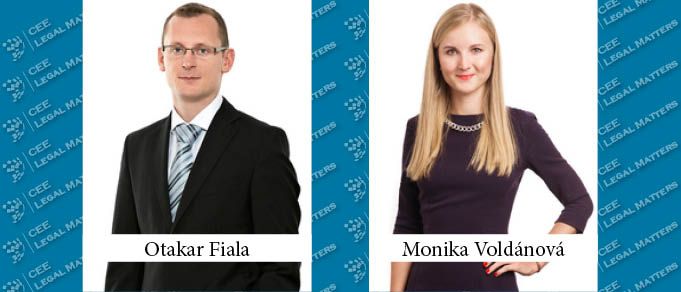The four-eyes principle is an effective way for companies to control management dealings. It is based on the idea that the company must be represented by two people acting jointly, usually two members of the statutory body.
The application of the four-eyes principle to members of the statutory body is clear and causes no confusion under Czech law. Likewise, the joint representation of two proxyholders. But every now and then a client, usually from the German legal environment, asks us whether the four-eyes principle may be applied to joint representation of an executive director together with a proxyholder.
Situation before 1 January 2014
Prior to the recodification of the Czech civil law (i.e. before 1 January 2014) the case law unequivocally concluded that the joint representation of an executive director with a proxyholder is not possible under Czech law. The main arguments were (i) the different level of liability of an executive director and a proxyholder, where only the former had the duty of due managerial care, and (ii) the varying nature of the representation of the company by the executive director and a proxyholder, where the former acted in the name of the company and the latter only as its representative.
Situation after 1 January 2014
As of 1 January 2014, the new Civil Code and the new Business Corporations Act resuscitated the question of joint representation of an executive director and a proxyholder. An executive director is now considered a mere representative of the company (i.e. he no longer acts in the name of the company) and the proxyholder is subject to the duty of due managerial care just like the executive director. As the main arguments under the previous case law no longer apply, some legal jurisprudence experts have stated that the four-eyes principle may be applicable to the joint representation of an executive director and a proxyholder. It must be stressed that the recodification did not include an express regulation of joint representation of an executive director and a proxyholder in the Czech legislation.
Consequently, the practice of the commercial courts (which maintain the Commercial Register in the Czech Republic) became erratic. Some courts were willing to register the joint representation of an executive director together with a proxyholder while others were not.
The first signals that the case law would side with the previous case law appeared with two decisions of the High Court in Prague (4 Cmo 184/2014 and 4 Cmo 576/2014). The Supreme Court of the Czech Republic published the first of these in its regular Collection of Decisions and Statements, anticipating the standpoint of the Supreme Court on this issue.
The Supreme Court itself had the chance to articulate its opinion in its decision no. 29 Cdo 387/2016 dated 31 October 2017. According to the Supreme Court, the joint representation of an executive director together with a proxyholder is (still) not allowed under Czech law and a provision of a memorandum of association allowing such a representation would be considered invalid. The Supreme Court argued that the representation of a company by executive directors is a status question of a legal person, which according to Section 1 (2) of the Civil Code belongs among issues that cannot be arranged differently from the law. The Supreme Court further pointed out that the Civil Code only allows the company to be represented either by a member of a statutory body alone or to modify this principle, but always within the statutory body. Finally, the Supreme Court also stated that a joint representation of executive directors and proxyholders would broaden the limited representation powers of proxyholders, which has no support in the law.
Internal limitation by a second signature
The above conclusions do not prevent companies from implementing the four-eyes principle internally, but only where such a limitation would be of no effect towards third parties. Thus, should the second signature be missing in violation of the internal regulations, the validity of the signed document would not be affected (even if the contract partner is aware of the internal regulation). Needless to say, the internal four-eyes principle will not be registered in the Commercial Register.
Conclusion
In light of the above, it can be concluded that the joint representation of an executive together with a proxyholder is not possible under Czech law. The commercial courts would find such provisions of the memorandums of association invalid and applications to register such a manner of representation in the Commercial Register would be rejected.
By Otakar Fiala, and Monika Voldanova, Attorneys at Law, Schoenherr




